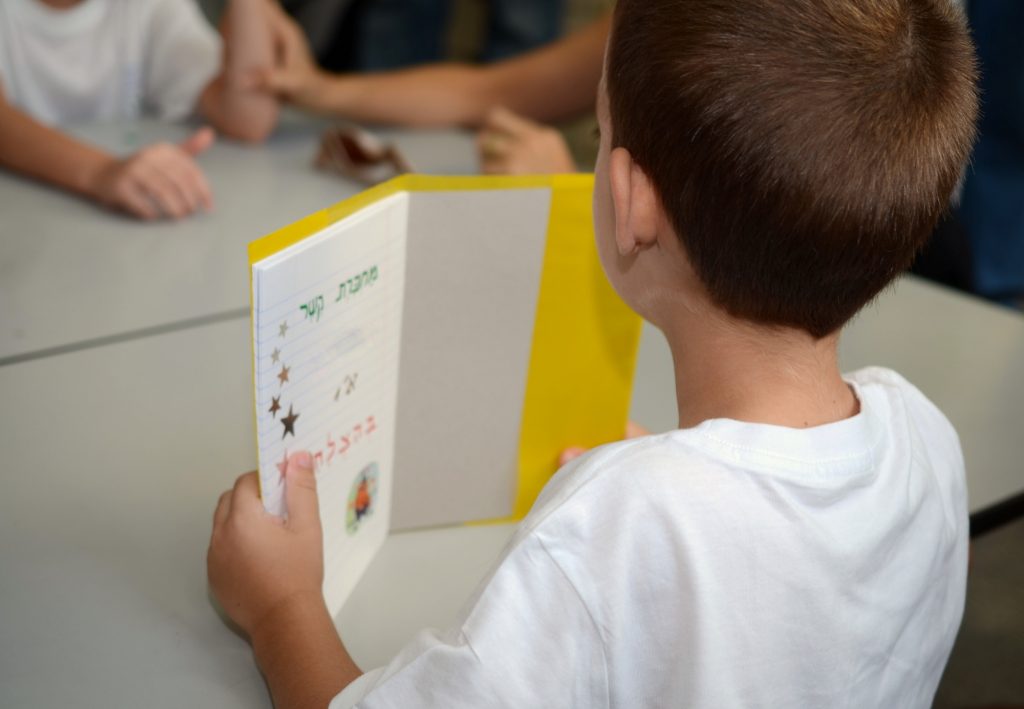Israeli Prime Minister Benjamin Netanyahu announced on Thursday that schools and universities would be shuttered as the country takes new measures to contain the spread of the novel coronavirus, declared a global pandemic by the World Health Organization this week.
Thousands of Israeli pupils starting from the first grade through high schools will not attend learning institutions until at least after the Passover vacation in mid-April, according to the directive which takes effect immediately. Daycares, pre-schools, kindergartens, and special education programs will remain operational.
Netanyahu said Thursday evening in a press conference that Israel and the world are “in the midst of an unprecedented situation the likes which we have not seen before,” and “no one knows how it will end.”
The virus is spreading quickly and the rate of infection is growing, warned Netanyahu, pointing to a global death rate of between two and four percent.
“Make your own calculations on how many people may die,” he warned. “In Israel, it can reach high numbers as well, god forbid. We will do everything – everything – we can so this will not happen.”
The ultimate goal, he went on, “is to slow the infection rate and to buy time” to let the health system care for the sick.
To this end, the premier urged, citizens must “listen to instructions, take hygienic measures, wash your hands, use tissues, avoid touching your face and keep your distance from others – at least a meter, two meters is better.”
“This is a real emergency situation, this is the hour to stand together. We are all in the same boat. All of humanity is in the same boat,” Netanyahu said.
Shmuel Abuav, director-general of the Education Ministry, told Israel’s Channel 12 Thursday evening that school and university closures will take immediate effect. Starting next week, “there will be a move toward remote learning,” he said.
The Israeli Teachers’ Union issued a preliminary statement in response to Netanyahu’s comments calling on kindergartens and pre-schools to be included in the directive.
The Union had earlier called on to suspend the school year amid rising concerns over the outbreak in Israel, where over 100 people, including several children, have tested positive for COVID-19, the disease caused by the novel coronavirus.
Sign up for our free weekly newsletter
Subscribe“I call on the prime minister to display national responsibility for the public’s health, including Israeli students, Israeli educators and their family members to stop the spread of the virus and prevent the next victims, ”
Yaffa Ben-David, the head of the teachers’ union wrote in a message to teaching staff. “I ask of you [Prime Minister Benjamin Netanyahu] to order to close all educational institutions across the country – kindergartens and school.”
Hebrew University announced earlier Thursday that it was putting off the opening of the spring semester by a week to prepare for remote-learning options and would begin offering online-classes only. Campus libraries, research labs and, administrative offices were set to remain open, however.
Israeli authorities have implemented strict measures since the global outbreak began, suspending numerous flights and ordering mandatory quarantines for citizens returning from abroad. Public gatherings and events for over 100 people, indoors and outdoors, have also been banned.
On Wednesday, Netanyahu announced that the government would expand an economic package unveiled earlier this week to NIS 10 billion ($2.8 billion) in a bid to help support the economy as the global coronavirus crisis grows. Netanyahu said the purpose of the program would be to “enable the economy to continue to function.”
“The coronavirus has a major economic impact on the economy. We are entering the crisis in good condition, the state of the Israeli economy is better than most economies in the world,” he said in a statement released to the media following discussions with the Finance Ministry and the Bank of Israel. “However, there is a challenge here” and “we can handle it in a way that we will get through it…safely.”
The economic package includes the NIS 4 billion ($1.2 billion) fund announced earlier this week to help local companies affected by the outbreak, as well as an additional NIS 6 billion ($1.7 billion) to “stabilize the economy.”
He also sought to allay fears about food and supplies and said country has enough resources to weather the crisis, urging people to avoid panic-buying. Speaking on Tuesday after a series of special discussions surrounding the coronavirus and its effects on Israel’s economy, Netanyahu said that most supplies reach Israel by sea including “products, raw materials… food” so there would be “no reason to storm the supermarkets.”
“There is more than enough food and there will be more than enough food. Regarding supplies by air, we are taking all steps and measures at our disposal to ensure that here too there will be an orderly supply by air to Israel,” he added.
The virus has spooked markets, taking a major toll on a number of key industries. It could cost the global economy $1 trillion in 2020, the UN’s trade and development agency UNCTAD said this week.
So far, over 4,700 people and more than 121,000 have contracted the virus worldwide, as of March 12. The majority of cases have been in China, with a major outbreak in Italy where a nationwide lockdown is being implemented.
Related posts

Editors’ & Readers’ Choice: 10 Favorite NoCamels Articles

Forward Facing: What Does The Future Hold For Israeli High-Tech?

Impact Innovation: Israeli Startups That Could Shape Our Future




Facebook comments